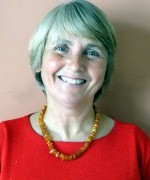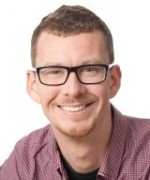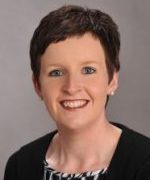What is Disability Matters?
Disability Matters is an interdisciplinary network of staff and students at the University of Otago, whose aim is to promote the development of disability related initiatives in research, teaching and community engagement.
Why?
Disability Matters aligns itself with the core tenets of Disability Studies (DS), a dynamic interdisciplinary field of research and scholarship that privileges individuals’ perspectives and experiences of disability, within a social justice framework.
Disability Matters prioritises research, teaching and community engagement that recognises and respects the leadership, expertise and contribution of disabled citizens, with (rather than on) whom initiatives are developed, carried out and evaluated.
Recognising disability as an inherent part of being human, as a critical experience that informs all aspects of our humanity, DS rejects traditionally narrow interpretations of disability in terms of ‘defective’ bodies and minds. Instead, it broadens the scope of understanding and inquiry by examining how disability is defined, re-presented and responded to in social, cultural, educational, political, legal, historical and other life contexts.
In order to fully understand the contextual nature and complexity of disability, Disability Matters promotes the development and incorporation of disability related knowledge and understanding in research and teaching initiatives across as many academic disciplines as possible.
Who?
Disability Matters is very much a (net)work in progress. Details of a core group of University of Otago staff and students are listed here. We also welcome collaboration with individuals and organisations who share our commitment to disability matters.
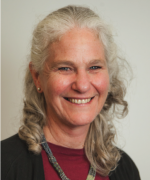 Leigh A. Hale, PhD, FNZCP
Leigh A. Hale, PhD, FNZCP
Professor Leigh Hale is the Dean of the School of Physiotherapy / Centre for Health, Activity, and Rehabilitation Research at the University of Otago, New Zealand and the Editor of the New Zealand Journal of Physiotherapy. She graduated as a physiotherapist from the University of Cape Town (South Africa) and went on to attain her MSc (Neurorehabilitation) and PhD from the University of the Witwatersrand (Wits) (South Africa). Professor Hale worked as clinical physiotherapist in all areas of physiotherapy before pursuing an academic career. After teaching neurorehabilitation at the Department of Physiotherapy at Wits for ten years, she moved to the University of Otago in 2000. Professor Hale primarily researches in the area of community-based physiotherapeutic rehabilitation for people living with disability and with neurological conditions, such as multiple sclerosis, stroke, and Parkinson’s disease. Her research uses both quantitative and qualitative methodologies and focusses on how physiotherapists can enable people to optimally live healthy and engaging lives. Read more about Leigh Hale.
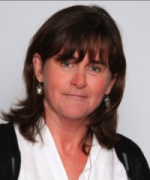 Gill Rutherford, PhD
Gill Rutherford, PhD
Gill is a Senior Lecturer in Education and Disability Studies at the University of Otago College of Education, where she has been involved in teacher education since 1995. Her prior employment with a disability service organisation and as a high school teacher has been critical in informing the focus of her current work, which is positioned within Disability Studies (DS) & inclusive education. Following on from her PhD, which sought to understand the school experiences of disabled students and teacher aides from their own perspectives, Gill is committed to working with students (at whatever level of education) to provide opportunities for their thoughts and experiences to be recognised and valued in both educational and research contexts. She is also extremely interested in how we construct and come to ‘know’ disability. Recently, she has investigated understandings of disability within higher education, focusing on how student teachers and university staff respectively think about disability, and how this impacts their recognition, responsiveness and respect for disabled people. Read more about Gill Rutherford.
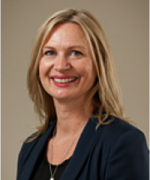 Dr Brigit Mirfin-Veitch
Dr Brigit Mirfin-Veitch
Dr Brigit Mirfin-Veitch is the Director of the Donald Beasley Institute (DBI). The DBI is an independent charitable trust, which conducts research and education in the field of intellectual (learning) disability. She is also a Senior Lecturer with the Centre for Post Graduate Nursing Studies, University of Otago (Christchurch). As a sociologist Brigit has a strong interest in understanding the social lives of people with learning (intellectual) disability and is committed to initiating and achieving social change through research. Brigit has been involved in research on a wide range of topics including deinstitutionalisation, physical health, mental health and wellbeing, parenting and the law, and has disseminated and published widely across those areas. She is particularly experienced in qualitative and inclusive research methodologies. Read more about Brigit Mirfin-Veitch.
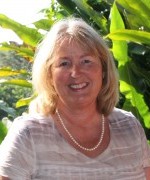 Associate Professor Nicola Taylor
Associate Professor Nicola Taylor
Associate Professor Nicola Taylor is the Director of the Children’s Issues Centre at the University of Otago in New Zealand. She also holds the Alexander McMillan Chair in Childhood Studies and works closely with the Faculty of Law. Nicola has a Bachelor of Social Work (Hons) degree, a Bachelor of Laws (Hons) degree, a PhD, and has been admitted as a Barrister and Solicitor of the High Court of New Zealand. She is also an accredited Family Mediator. Nicola has a particular interest in socio-legal research with children, parents and professionals including residence and contact, relocation, abduction, children’s participation, child-inclusive practice and family dispute resolution. She is currently involved in a major project evaluating the 2014 New Zealand family law reforms.
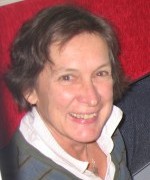 Dr Hilda Mulligan
Dr Hilda Mulligan
Dr Hilda Mulligan is an academic physiotherapist with research interests that encompass participation by people with disability in everyday life, promotion and facilitation of physical activity for people with disability, and promotion and facilitation of self-management for people with long-term conditions.
Read more about Dr Hilda Mulligan.
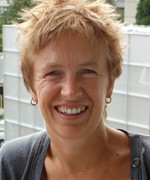 Lisette Burrows
Lisette Burrows
Lisette is a Professor in the School of Physical Education, Sport and Exercise Sciences. Her research canvasses a range of social justice issues in Health and Physical Education. She is particularly focussed on young people’s perspectives of health and physical culture in their everyday lives. She has always been interested in how the content and pedagogies of school–based Physical Education enable some students and disable others. She has supervised doctoral work focused on inclusive physical education and the experiences of those with learning challenges in schools. Read more about Lisette Burrows.
Dr Denise Powell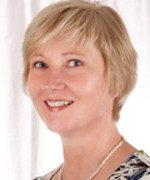
Dr Denise Powell is a Senior Lecturer and Endorsement Coordinator for the PGDipSpTch (Deaf and Hard of Hearing) at the University of Canterbury. Her main research interests include inclusive education, focusing in particular on the perspectives of students with a disability in the compulsory and tertiary education sectors; the role of teacher education in facilitating the development of inclusive education in schools and evidence-based practice; early intervention with deaf children and their families; improvements in the provision and effectiveness of educational services for D/deaf students at all levels of education; social participation experiences and life transitions for deaf children and adults across the life span; and human rights issues for disabled people, especially those disabled by accident/injury. Read more about Dr Denise Powell.
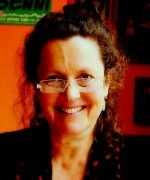 Associate Professor Sarah Derrett, MPH PhD
Associate Professor Sarah Derrett, MPH PhD
Sarah Derrett is an Associate Professor in Public Health (Health Systems and Public Policy) at Preventive and Social Medicine, University of Otago, Dunedin. She leads the Prospective Outcomes of Injury Study and the recent Subsequent Injury Study, both funded by the HRC, which are focused on person-reported outcomes and experiences (including disability) for a group of 2856 injured New Zealanders. She is co-investigator on several other HRC, NHMRC and MAA-funded projects investigating disability, health and well-being as experienced by people. Read more about Associate Professor Sarah Derrett, MPH PhD.
![HENRIETTA TRIP [2]](https://blogs.otago.ac.nz/dismatters/files/2015/09/HENRIETTA-TRIP-2--e1468546639439.jpg) Henrietta Trip
Henrietta Trip
Henrietta’s research interests focus on health and ageing in the specialist field of intellectual disability and other vulnerable populations. Alongside of this is an attentiveness to the place of social models of disability, the role of health and disability services, families and whanau in supporting those with long term conditions. She is involved with research that is looking at the impact of the Christchurch earthquakes on both staff and students in tertiary education institutions. Henrietta is currently undertaking a PhD exploring the experience and expectations of people who are ageing with an intellectual disability in the context of their family and whanau. Read more about Henrietta Trip.
Mary Butler
Mary Butler trained as an occupational therapist, with a background in anthropology. This helped her to make an early distinction between research from a rehabilitation and a disability perspective. Most of Mary’s research has been from the perspective of people with disability and their carers.
Dr Gareth Treharne is a Senior Lecturer in the Department of Psychology at the University of Otago, where he has worked since 2007. His research interests are in health psychology, rheumatology, sexuality and gender, and the application of qualitative and quantitative research methods. These interests all intersect with people’s abilities and freedoms as critical issues for well-being.
Read more about Gareth Treharne.
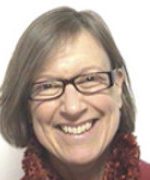 Martha Bell
Martha Bell
Martha Bell has had over ten years of social science research experience since gaining her PhD in Sociology at Massey University. Her most recent project surveyed the practice and policy of alternative arrangements provision in tertiary education Disability Support Services for ACHIEVE (2015). A past project examined disability discourses and parent advocacy in New Zealand. Her current project is a collection of stories of adult siblings of a brother or sister living with impairments. She is a member of ACHIEVE, The National Post-Secondary Education Disability Network Incorporated, and she serves as the network leader of the eSocSci Mobilities Network for Aotearoa New Zealand. Martha Bell is a research associate for Media Associates, Dunedin New Zealand. Read more about Martha Bell.
 Robbie Francis
Robbie Francis
Robbie Francis, from Hamilton, has worked in the disability sector as a support worker, researcher for Attitude Pictures and as an intern for an international disability rights organisation. She has experience working with disabled children in France, Bangladesh, India and Mexico and has also spearheaded research on gender, war and disability rights. In 2014 she co-founded The Lucy Foundation, a social enterprise led by young people with a passion for developing environmentally, economically, socially and inclusive projects in collaboration with local communities. The Foundation’s first project is based in Oaxaca, Mexico where they are working with locals with and without disabilities to promote a culture of disability inclusiveness, equality, human rights, training and employment through the production and export of speciality coffee to New Zealand. Robbie is currently a PhD candidate at the University of Otago National Centre for Peace and Conflict Studies, and is looking at disability rights during armed conflict. She is also on the reference group advising the New Zealand Government on the new New Zealand Disability Strategy. Robbie has a lived experience of disability.
Melissa joined the team at Disability Information & Support in 2002. In her role as Manager, Melissa is responsible for facilitating an environment where students with impairments are provided with equitable opportunities to achieve their individual capabilities and participate in all aspects of tertiary education life.
In addition, Melissa is the Co-President of ACHIEVE, which is a national network, established to ensure equal opportunity and access to post-secondary education and training for people with impairments.
Motohide Miyahara
Motohide Miyahara studied psychology and health education in Japan, and movement therapy and kinesiology in the US. After completing PhD, he was engaged in post-doctoral research in UK and Germany, and taught in a postgraduate program in Norway. Since 1996 he has been teaching and researching in the areas of development and disability, while directing the Movement Development Clinic at the School of Physical Education, University of Otago. He conducts disability research with a main focus on developmental disabilities by taking advantage of a wide range of methods, including qualitative interviews, case study research, psychological experiment, systematic review and meta-analysis. He is currently working on empathy and mindfulness related to people with disabilities and elderlies.
Megan Turnbull
I am a gestalt psychotherapist currently working at Student health In the counselling team and also in private practice providing therapy and clinical supervision. I am blind and have a guide dog called Oban. I don’t have any publications but I have a personal interest in disability issues and have provided a range of disability awareness education sessions over the years.

